Students Across Yale Innovate In Response to Climate Change
The word “future” flashed on-screen in bold, blue font, shortly followed by the words “urgency,” “justice,” and “responsibility.” Next appeared seemingly disparate phrases such as “water access,” “urban resilience,” “existential threat” — and even a string of animal emojis.
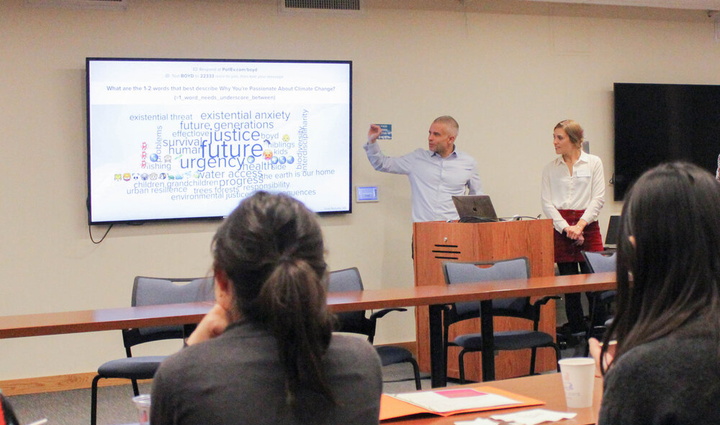
The eclectic graphic kicked off the Climate Change Solutions Generator (CCSG), an Intensive led by Anelise Zimmer, a graduate student at Yale FES; Peter Boyd, Fellow at the Yale Center for Business and the Environment (CBEY) and Mentor-in-Residence at Tsai CITY; and Ben Soltoff, Environmental Innovation Fellow at CBEY and Tsai CITY. Intensives are extracurricular learning opportunities offered through Tsai CITY, and the CCSG was a collaborative project between Tsai CITY and CBEY that brought together a cohort of students passionate about climate innovation.
At the first session, Zimmer and Boyd expressed the interdisciplinary nature of the issue at hand. The word cloud depicted the cohort’s differing interests, and the mix of anxiety and passion underlying their interest in climate change. A host of reflection exercises led by Boyd demonstrated how the cohort’s academic backgrounds, upbringings, and personal goals can play into a potential solution. An online resource and book called Project Drawdown, introduced by Zimmer, showcased just how many different climate change solutions exist, ranging from those addressing ocean acidification to supporting climate justice.
“Where does climate change fit in your life?” Boyd asked the cohort. “Is it in the urban noise of Manhattan, or does it lie in childhood memories of nature?”
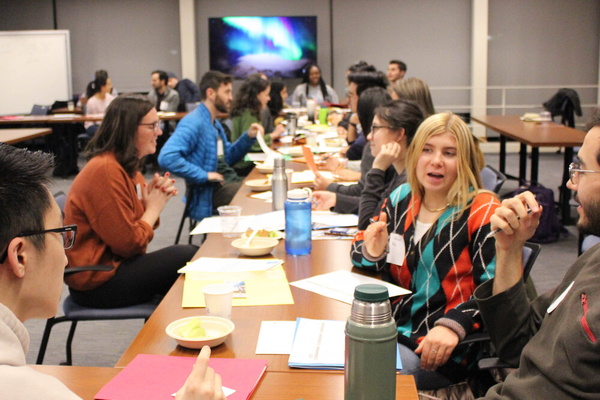
It quickly became clear that the cohort shared diverse perspectives and a commitment to tackling climate change, yet their ideas were not fully developed. Over the next month, however, the cohort would combine their diverse backgrounds and perspectives into five teams, each working towards generating an innovative solution.
Throughout the intensive, teams would split time between ideation, research, and listening to speakers in the field of climate change innovation. During a session devoted to financing and development, Soltoff covered the basics of financial terminology and funding pathways for potential climate-focused ventures. In the same session, FES mid-career master’s student Neil Yeoh of 1.5degrees, a sustainability advisory firm, and Jake Billhorn, a joint-degree student at FES and SOM, provided insider info on the financing process from the investor point of view. The cohort was also joined by other guest speakers including Jacquelyn Francis from The Keeling Curve Prize, Morgan Silver-Greenburg of Whittle School & Studios, and CBEY’s Martin Wainstein, who spoke to the cohort about securing grants, problem-solving, and systems thinking.
“All of you are currently in the lab, and you’re trying to bring an idea from the lab into the world,” Yeoh advised the cohort at one point. “That process will undoubtedly be a winding road.”
Equipped with the speakers’ insights and hours of individual work, the cohort headed to the Yale School of Management with their final presentations on March 4th. The first team to present, called Food Carbon Impact, proposed partnering with food delivery and pick-up apps such as Snackpass to address the carbon footprint of food. By implementing item-specific carbon labels along with monthly sustainability quizzes with discounts as an incentive, the project hopes to educate consumers on their carbon footprint and influence their behavior. The next group proposed a web extension called GreenBuy, which displays sustainability metrics of a company and its products during a consumer’s online shopping experience. Similarly, their goal is to educate consumers and reward sustainable choices through points and discounts.
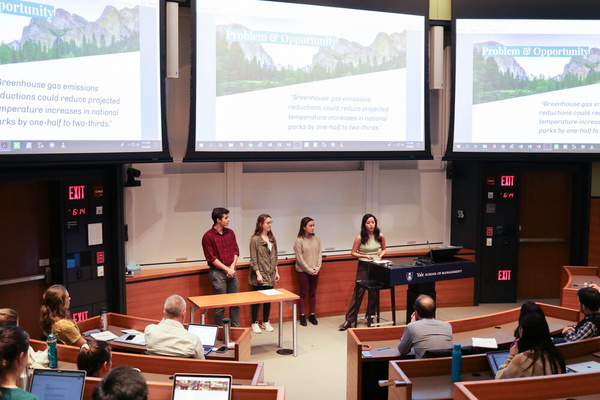
“Innovation is a critical part of solutions to climate change,” said FES postdoctoral associate Luke Browne, who worked on Food Carbon Impact. “The intensive was a productive and fun way to bring people together in a room, give them a goal, and generate solutions to get to a net-zero economy.”
Other groups took more entrepreneurial approaches: BoolaPool, a carpooling app targeting the carbon emissions of ride-share services, if implemented, “could potentially save roughly 140 tons of CO2 just at Yale;” Progreen, a leaf protein concentrate, taps into the protein supplement market while allowing buyers to donate a portion of the sale to a climate change cause of their choice. The final group presented the largest, most public solution: re-imagining the National Park ecosystem as a model for what a net-zero future could look like. By revamping buildings, transportation, waste management, and energy sources in a place as iconic as National Parks, the project not only updates outdated and unsustainable infrastructure, it could also change belief systems surrounding the climate as a whole.
By the end, the cohort had generated five ideas for solutions. More importantly, each student left the program with hands-on experience of the innovation process, and a concept with the potential to produce real change. The program’s leaders emphasized the power of this experience: “We hope that a big takeaway from the CCSG is that solving climate change is a task that cannot be addressed only by those who identify as environmentalists. It must be tackled from every possible angle through technology, business, community, and policy solutions,” reflected Zimmer. As Peter Boyd said in one session, “We moved on from the Stone Age not because we ran out of stones, but because we found something better.”
Innovative Student Ventures
Beyond the CCSG, various Yale and Tsai CITY-supported startups are poised to launch and make an impact in the near future. From sparking early-stage ideas through programs like the CCSG to helping drive forward more advanced student ventures, there is a growing pipeline at Yale for climate-focused ventures and projects. Here’s a look at two such ventures currently taking shape at Yale.
Cambium Carbon (Fall 2019 Tsai CITY Accelerator participant; 2019 CBEY Sobotka Seed Grant Recipient and Climate Change Innovation Seed Grant Recipient)
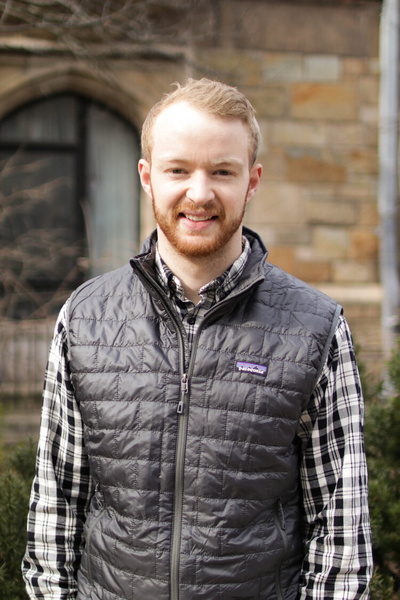
Ben Christensen founded Cambium Carbon last summer, but his passion for the environment was established long before the venture.
“I’m from a really small town outside of Albuquerque, New Mexico — 200 people right in the woods. My back door opened up onto one of the national forests growing up, my dad is a carpenter and a woodworker, and my mom is a hydrologist, focused on the environmental side of water,” Christensen says. “So, I’ve always been connected to trees, wood, and the environment.”
Named after cambium, the layer of tissue in a tree responsible for growth, Cambium Carbon’s mission is to provide a catalyst for restoring tree cover in America at a pace matching the urgency of climate change. “We’re not just trying to do tree-planting, we’re trying to do tree-planting in a way that connects people to trees and broader climate action,” Christensen says.
As Christensen explains, tree-planting as it is done today is often unsustainable: funding usually omits key elements for long-term survival such as watering or nutrient management. Cambium Carbon, however, aims to create a self-sustaining system by creating new revenue streams for tree-planting, or, as Christensen puts it, “a circular economy that reforests America.” Through “financing, technology, and partnerships,” the venture turns tree-planting into a cycle of revenue benefiting cities and communities and, ultimately, a form of natural carbon removal.
Still, Christensen doesn’t view the company as a catch-all solution to climate change. “Tree-planting is not a panacea, it’s not something that is going to save the world by itself, but it can be a meaningful contributor in the short term. There’s no silver bullets, and we need everything,” he explains.
“One of the amazing things about trees is that they bring in people outside the environmental bubble,” Christensen adds. “We want to use trees to create social awareness and engagement, and to galvanize ambition loops within cities and broader community spaces.”
Grantas Cosmetics (fall 2019 Tsai CITY Accelerator participant)
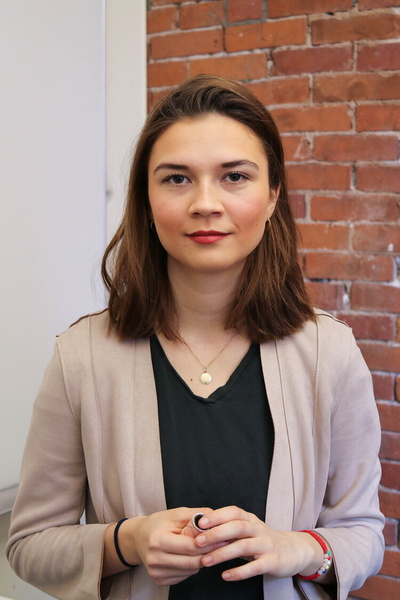
After graduating from Yale College in 2017 with a degree in Environmental Engineering and working at an renewable energy startup, where she helped design a toilet that turns waste into biogas usable for cooking, Lillian Childress returned to Yale as a graduate student at FES. It was during that time that she developed Grantas Cosmetics: a line of all-natural cosmetics products with biodegradable packaging.
“I’ve always known I wanted to do something that helps the environment,” Childress said. “The mission of Grantas encapsulates many environmentally innovative measures. It’s beauty without waste, meaning we want to cut material waste but also regenerate the materials it takes to make our products.”
When creating the business, Childress was careful to choose vegan, cruelty-free formulations that are not greenhouse gas-intensive to produce and packaging that is fully compostable and recyclable. Moreover, as part of the Grantas Kickstarter campaign, which generated over $9,000, she partnered with the nonprofit One Tree Planted to plant one tree in the Amazon rainforest for every lip+cheek stick and eyeshadow round purchased.
“The fact that the business exists means that carbon is being drawn from the atmosphere,” Childress explained. “My hope for the business is that we’re not just carbon-neutral, but carbon-negative.”
Reducing waste also translates directly to the products themselves. Childress realized that beauty and cosmetics products are often the same materials repackaged into different products. Blush, she noted, is compositionally similar to lipstick, and Grantas’s lip+cheek stick reduces the need for two products and packages.
“We want to create multifunctional products so that people can just use the essentials,” Childress said. “We want people to understand that they don’t need to use a million products to feel beautiful.”
Funding and Support for Innovation
Throughout the Yale ecosystem, organizations like CBEY house a variety of programs and funding opportunities for any student interested in climate change innovation. From smaller seed grants to the $25,000 Sabin Prize, a wide range of funding exists for students well into the innovation process.